#marine engineering
Explore tagged Tumblr posts
Text
how to get an engineering degree: go to exam week fuelled on luck, whimsy, and hubris alone
#i've cracked the code#knowing the content is just a mindset#yes this is exactly what I said on discord don't call me out#marine engineering#engineering#exams#why am i tagging this#literally just my bullshit thoughts
8 notes
·
View notes
Text

So, lol quick intro... I am a huge fan of Haddock, and I have this theory based on The Red Sea Sharks that he started out as an engineer before switching to deck crew and became a captain. I am working on a fan comic of young Haddock in an AU where he is working as a chief engineer aboard the merchant vessel Kharon. I might make a separate tumblr page for just the finished pages when I reach that point, it's still in development, but you'll be seeing a lot of both older Haddock and young Haddock aka Archie. I adore drawing them ✨️ And I love dabbling with AUs, so you'll see a lot of them, too 🤣
#captain haddock#archibald haddock#comics#tintin#artists on tumblr#fanart#alternate universe#marine engineering#tintin and the red sea sharks#the kharon#the kharon comic
119 notes
·
View notes
Text
Usually the water's outside the ship
3 notes
·
View notes
Text

7 notes
·
View notes
Text
trying to be dark academia when im studying marine fucking engineering kill me already
7 notes
·
View notes
Text
If y'all haven't read this article on the Titan you should here's some hilights:




I cannot imagine going anywhere near this wreck of an exposition and I'm just a lowley marine engineer of surface vessels-- the hubris of an aeronautical engineer to assume he could ignore the laws of materials science is astounding
I'm so glad he's dead and the sub is gone but what a tragedy to kill four other people with him
#titan submersible#titan submarine#marine engineering#catostrophic failure#New Yorker article#Oceangate#tw death#just some bs
72 notes
·
View notes
Video
youtube
Top 10 Civil Engineering Mega Projects in the Netherlands
Top 10 Civil Engineering 🚜⚙️🗜️ Mega Projects in the Netherlands https://www.youtube.com/watch?v=z_qdc3DAtLw
#youtube#Netherlands#Dutchlandscap#dutchengineering#infrastructuredevelopments#MegaProjects#civil engineering#DeltaWorks#SustainableInfrastructure#NetherlandsProjects#InnovativeEngineering#FloodProtection#windmills#tulips#water management#urban development#Dutch Ingenuity#engineering#mega projects in the world#civil engineering projects#biggest mega projects in the world#civil engineering career in usa#CivilEngineering#Dutch#The Netherlands#The Dutch#DutchorangeBus#Dutchfans#Euro2024#marine Engineering
3 notes
·
View notes
Text

21st June 1791 saw the birth of the engineer Robert Napier, the engineer.
Born in Dumbarton, Napier worked as an apprentice to his father before moving to Edinburgh where he worked for engineer Robert Stevenson.
In 1815, he began his own engineering business in Glasgow. Acknowledging Henry Bell's work in the development of the steam-powered Comet, Napier began building marine steam engines. His first engine performed well in the steamer Leven and is preserved today at the Denny Ship Model Experiment Tank. He founded Parkhead Forge in Glasgow in 1837 to make iron for boiler plate. In 1841, he began building ships, which included some of the earliest iron-clad warships. Napier did much to establish the international reputation of the River Clyde as an centre for ship-building. With the Canadian shipping tycoon Samuel Cunard, he planned steam-powered vessels for transatlantic service and helped set up a company to run them. Napier also proved the economy and versatility of steam-powered vessels to the Admiralty.
In 1849 he built Leviathan, the world's first train ferry, which sailed from Granton to Burntisland. The Persia, launched in 1854, was the world's largest ship and the ironclad Black Prince, which was launched from Govan in 1861, was the largest Clyde-built ship of its time.
In 1861, the Parkhead Works were bought by Napier's son-in-law and William Beardmore. Napier won international respect; he became President of the Institution of Mechanical Engineers and was honoured by France and Denmark. He made his home at West Shandon, by the Gare Loch, which he filled with a remarkable collection of furniture, porcelain and paintings, including old masters and works by artists such as Raeburn and McCulloch.
Napier's wife died in 1875 and, overtaken by grief, he took ill and died at West Shandon the following year. Thousands lined the route to Dumbarton Parish Church, where he was buried in the family vault.
5 notes
·
View notes
Text
Charting Careers: Exploring Maritime Training Institute in India
Introduction –
In the vast expanse of the maritime industry, where opportunities stretch as far as the horizon, finding the right path can be like navigating uncharted waters. This is where a reputable Maritime Training Institute in India becomes the guiding star for aspiring mariners, offering a beacon of knowledge, information, skills, and opportunities.
The School of Maritime Studies at Centurion University is the right educational institution for individuals wishing to pursue a career in the maritime industry. Explore the world of the Indian Maritime Training Institute at the School of Maritime Studies, where careers are built and dreams come true.
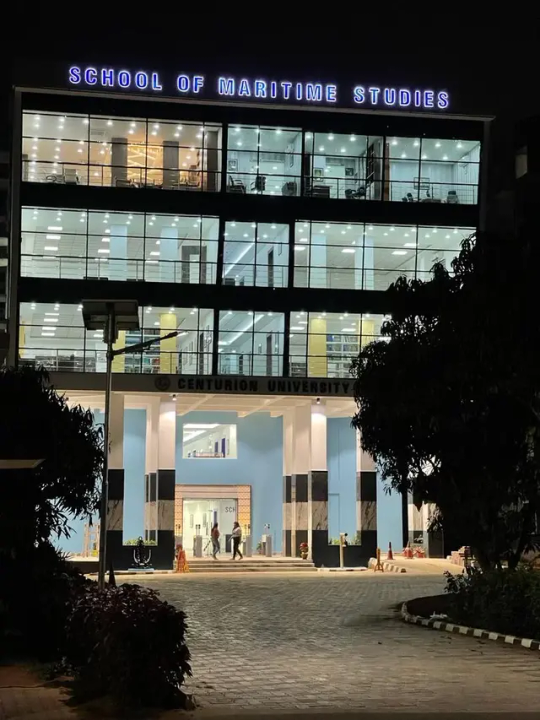
1) Understanding the Importance of Maritime Training Institute in India –
The maritime industry is a dynamic and diverse field, encompassing everything from shipping and logistics to offshore exploration and marine engineering. As a nation with a rich maritime history and a significant presence in the global shipping industry, India recognizes the importance of nurturing skilled maritime professionals.
A reputable institute like the School of Maritime Studies at Centurion University not only imparts theoretical knowledge but also provides hands-on training and industry exposure, preparing students for the challenges of a career at sea. . This institute serves as lighthouses guiding students through the complex waters of the maritime world, equipping them with the skills and knowledge needed to navigate their careers successfully.
2) The School of Maritime Studies: A Pillar of Excellence in Maritime Education –
One of the leading names in maritime education is in India is the School of Maritime Studies at Centurion University. Renowned for its commitment to quality education, excellence and practical training this institution has earned its reputation as a premier Maritime Training Institute in India, shaping the future of mariners for years.
Through a combination of comprehensive curriculum, state-of-the-art facilities, experienced faculty, and industry collaborations, the School of Maritime Studies provides students with a holistic learning experience that covers all aspects of maritime education. From navigation and ship operations to safety protocols and industry regulations, the institute ensures that graduates are well-prepared for the challenges of the maritime industry.
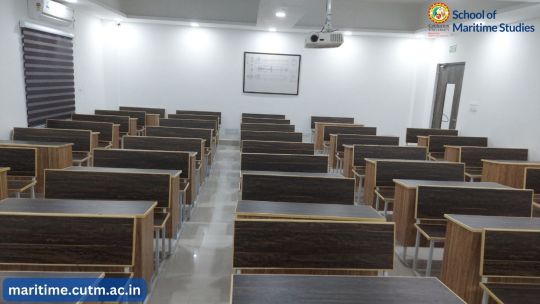
3) Centurion University: Fostering Maritime Talent –
As a prominent player in the field of higher education, the School of Maritime Studies at Centurion University recognizes the importance of maritime education in India's growth as a maritime nation. The university prepares aspiring mariners not just for jobs but for fulfilling and rewarding careers in the maritime sector.
Through its Maritime Training Institute in India, the School of Maritime Studies at Centurion University focuses on experiential learning and industry collaboration, offering a range of programs tailored to meet the diverse needs of the industry. From diploma courses in nautical science to degree programs in marine engineering, the university provides students with the tools they need to thrive in the competitive maritime landscape. The university's state-of-the-art facilities and experienced faculty further enhance the learning experience, making it a preferred choice among maritime aspirants.
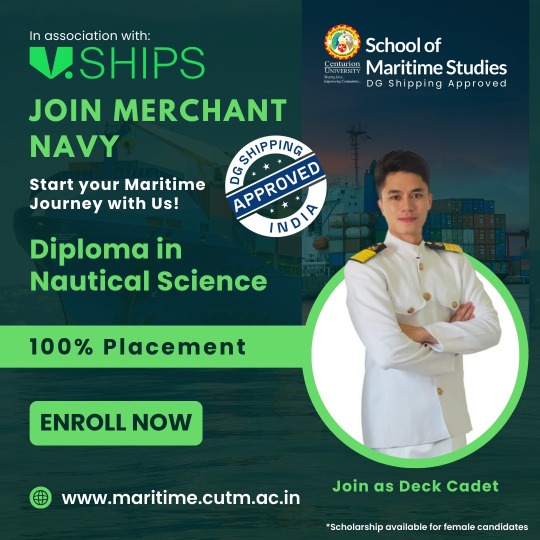
4) Maritime Education: A Gateway to Success –
For those considering a career in the maritime industry, investing in quality education is the first step towards success. A Maritime Training Institute in India like the School of Maritime Studies at Centurion University offers the perfect blend of academic rigor and practical training, setting students on the path to a fulfilling career at sea.
The School of Maritime Studies, Centurion University integrates classroom instruction with real-world simulations and on-the-job training opportunities. Through a combination of classroom lectures, hands-on exercises, and industry internships, students gain a comprehensive understanding of the maritime sector and develop the necessary skills to excel in their chosen field.
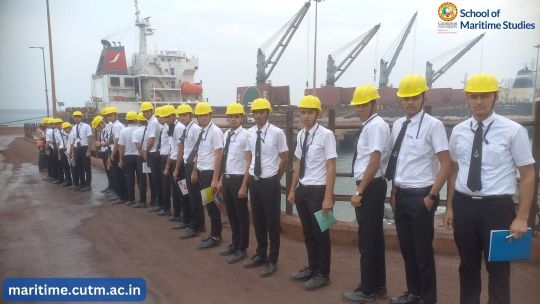
Whether aspiring to be deck officers, marine engineers, or naval architects, the institute provides the necessary tools and resources to turn aspirations into reality. Students have access to ship simulators, engine rooms, and training vessels, where they can apply their theoretical knowledge in practical scenarios. This hands-on approach not only enhances learning but also prepares students for the challenges they will face in their future careers.
5) Industry Collaboration: Bridging the Gap –
One of the hallmarks of a reputable Maritime Training Institute in India is its collaboration with the industry. Through strong partnerships with leading shipping companies, port authorities, maritime organizations, and research institutions, institutes like the School of Maritime Studies at Centurion University ensure that their curriculum remains relevant and up-to-date with industry standards.
These partnerships provide students with valuable insights into industry trends, practices, and technologies. By bridging the gap between education and employment, these collaborations also open doors to internships, job placements, and networking opportunities, giving students a head start in their maritime careers.
Conclusion –
As the maritime industry continues to evolve, the demand for skilled professionals is on the rise. A quality education from a reputable Maritime Training Institute in India like the School of Maritime Studies at Centurion University is the key to unlocking a world of opportunities in this dynamic field. By providing a blend of academic excellence, practical training, industry collaboration, and global exposure, these institutes empower aspiring mariners to chart their course towards a successful and fulfilling career at sea.
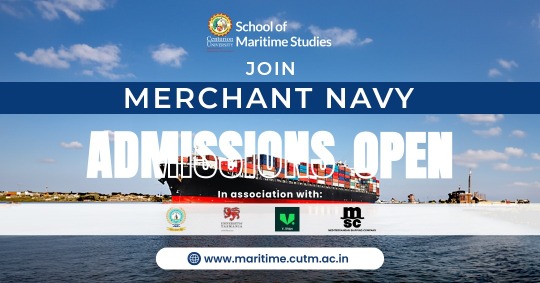
#Maritime Training Institute in India#School of Maritime Studies#Centurion University#maritime industry#maritime education#marine engineering
3 notes
·
View notes
Text

A sailor is an artist whose medium is the wind.
9 notes
·
View notes
Text
The Secret to Career Growth in Marine Engineering?
Why Career Growth in Marine Engineering Matters
Let’s face it—marine engineering isn’t just a job, it’s a lifestyle. Long hours, weeks at sea, and complex systems make it intense. So if you’re already putting in that kind of work, why not get the recognition, position, and salary to match? Career growth in this field isn’t just about climbing a ladder—it’s about building your ship as you sail.
How the Industry is Changing
From diesel engines to digital dashboards, marine engineering has come a long way. Today, it's not just about wrenches and boilers—it’s automation, sustainability, data, and design. If you’ve been in the game for a while, you’ve probably seen the tech waves coming in. Adapting to this change? That’s your edge.
Understanding the Marine Engineering Landscape
The Modern Role of a Marine Engineer
Marine engineers today are more than grease-streaked gearheads. You're managing complex systems, liaising with international crews, handling documentation, and even troubleshooting AI-powered equipment. It’s a hybrid role now—technical expert, leader, and strategist rolled into one.
Where the Opportunities Are Today
Growth is happening in niche sectors—offshore wind, LNG tankers, hybrid propulsion systems. Shore-based roles in maintenance planning, marine consultancy, and remote diagnostics are booming too.
The Key to Unlocking Growth
Mindset Over Skillset
Let’s be real—skills matter. But mindset? That’s what separates the Chief Engineers from the ones who stay stuck on entry-level roles. Be curious. Take initiative. Stay humble, but hungry.
Staying Adaptable in an Evolving Industry
Today it’s AI. Tomorrow? Who knows. The ability to adapt quickly to changes—whether it’s a new safety regulation or onboard tech—keeps your career futureproof.
The Importance of Continuous Learning
Courses That Make a Difference
Doing a marine engineering course from a renowned college can truly shape your career in ways that go beyond just textbooks. For marine professionals, the industry demands not just technical know-how, but also real-world skills and a strong foundation. A respected institute offers that edge—through experienced faculty, hands-on training, and exposure to advanced maritime technologies.
Online Courses, Seminars, and Conferences
There’s gold in virtual webinars and marine tech expos. Whether it’s IMarEST webinars or DNV-GL conferences—learning outside your job role adds depth to your expertise.
Platforms and Resources Marine Engineers Use
LinkedIn Learning, Coursera, SNAME resources, and industry-specific platforms like Marine Insight or gCaptain are solid tools for leveling up.
Mastering Both Technical and Soft Skills
Technical Skills That Set You Apart
You know your hydraulics and thermodynamics—but what about integrating PLCs or diagnosing data from remote systems? Staying sharp on the tech side is non-negotiable.
Communication and Leadership in the Engine Room
Good engineers solve problems. Great ones explain them clearly and lead teams to fix them. If you're eyeing Chief Engineer roles, leadership is your secret weapon.
Networking and Mentorship
Why Connections Still Matter at Sea
The marine industry might seem vast, but it's a tight-knit global circle. Knowing someone who knows someone can be the difference between landing a shore-based job or staying offshore.
Finding Mentors in Unexpected Places
Your last Chief Engineer? That quiet electrical officer? Mentors don’t always wear a badge. Watch, learn, ask questions—they’re often happy to share if you’re ready to listen.
Climbing the Ranks
From Deck Cadet to Chief Engineer
The ladder exists, and many climb it. But promotions aren’t just about time served. They’re about reliability, leadership, and initiative. Want the Chief’s chair? Start acting like one today.
Career Paths Beyond the Vessel
There’s life after sea—technical superintendents, marine surveyors, classification society roles, training instructors. The sea is only part of the journey.
Navigating Industry Challenges
Mental and Physical Strain at Sea
Isolation, shift work, and constant motion can take a toll. Growth isn’t worth it if your health pays the price. Recognize burnout signs and prioritize well-being.
Dealing With Automation and Job Uncertainty
Yes, ships are getting smarter. No, that doesn’t mean engineers are obsolete. But it does mean upskilling is more important than ever.
Standing Out in a Crowded Field
Personal Branding for Marine Professionals
You don’t need to be an influencer. But having a clear, updated LinkedIn, sharing insights, and staying visible can position you for promotions and new opportunities.
Using LinkedIn and Industry Portals Effectively
Join groups, follow companies, engage with posts. Many marine roles never get listed publicly—they’re filled through networks.
How Tech is Reshaping the Game
Smart Ships, AI, and Remote Monitoring
Imagine diagnosing a problem on a ship halfway across the globe via real-time data. That’s now. Learning the systems behind it? That’s your ticket to growth.
Upskilling to Stay Ahead of the Curve
Basic engine maintenance isn’t enough anymore. You’ve got to understand hybrid propulsion, fuel management software, and digital twins.
The Global Nature of the Industry
Exploring International Waters for Career Expansion
Your certifications can take you anywhere. Working in Singapore, Norway, or the UAE isn’t just a dream—it’s a valid next step.
Real Talk from Industry Pros
Career Lessons from Marine Engineers in the Field
“Never stop asking questions.” “Treat every engine like it’s new.” “The best training ground? Real breakdowns.” These nuggets come from those who’ve been there, done that—and they're gold.
A Word on Work-Life Balance
Can You Grow Without Burning Out?
Short answer: yes. But it takes intention. Set goals, schedule rest, and don’t chase every promotion at the expense of your health or family.
Setting Your Own Course
Career Planning Tips for Long-Term Success
Create a 5-year plan. Revisit it yearly. Be honest about what drives you—status, income, freedom? Let that guide your path.
Knowing When to Pivot
It’s okay to step ashore, switch specializations, or even enter marine tech sales. Career growth doesn’t always mean going up—it can mean going in a new direction.
Conclusion: Charting Your Own Growth Path
Career growth in marine engineering isn’t a mystery—it’s a mission. And like any good mission, it requires vision, effort, and a few trusted crewmates along the way. So, keep learning, keep connecting, and don’t be afraid to dream bigger than your current rank. Whether you’re still onboard or considering what’s next ashore, your career is a ship—and you're the captain.
FAQs
1. What is the fastest-growing area in marine engineering? Green technologies, such as hybrid propulsion and LNG systems, are rapidly expanding and offer great career prospects.
2. How do I transition from sea-based to shore-based roles? Build connections, highlight leadership and problem-solving skills on your resume, and consider certifications in marine survey or management.
3. What certifications offer the best ROI? Aside from your CoC, courses in energy management, AI for marine systems, and project management are high-value additions.
4. How can I find a mentor in this industry? Start by networking during courses, attending webinars, or joining marine engineering college.
5. Is automation threatening marine engineering jobs? Not entirely. It’s shifting the focus from manual work to system management, diagnostics, and strategic thinking—upskill to stay relevant.
1 note
·
View note
Text
Common Fuel Injection Problems

Maintaining marine fuel injectors is essential for ensuring engine performance, fuel efficiency, and safety on the water. Common issues such as clogging, leaks, incorrect fuel pressure, and electrical malfunctions can lead to poor combustion, increased emissions, and potential breakdowns. Regular inspections, proper cleaning, high-quality fuel use, and fuel pressure adjustments help prevent these problems and keep vessels operating smoothly. Marine Diesel Specialists, with expertise in marine engine repair in Fort Lauderdale and Punta Gorda, offer professional solutions to keep your boat in top condition. Click the link below to learn more.
#yacht#yachting#boat engines#fort lauderdale#south florida#marine engines#marine engineering#punta gorda#boating#boats
0 notes
Text

Work's got its moments
3 notes
·
View notes
Text
youtube
#entertainment#entertainment news#facts#interesting facts#vessel innovation#marine engineering#shipbuilding tips#navigation techniques#boating advice#craft maintenance#ship#toogood#toshink#Youtube
0 notes
Text
How Accurate Calibration Services Enhance Marine Safety?

In the maritime industry, accurate instrument calibration is crucial for safety, compliance, and efficiency. Instruments can drift out of calibration due to environmental factors, risking navigational errors and undetected hazards. Regular calibration ensures precise data from gas detection systems and navigation equipment, minimizing risks. It enhances safety, ensures regulatory compliance, boosts operational efficiency, and saves costs by preventing expensive repairs. Invest in reliable calibration services to protect your crew and optimize your maritime operations. Contact Blessed Marine Automation for top-notch marine services!
#marine services#instrument calibration#equipement calibration#marine engineering#calibration services
0 notes